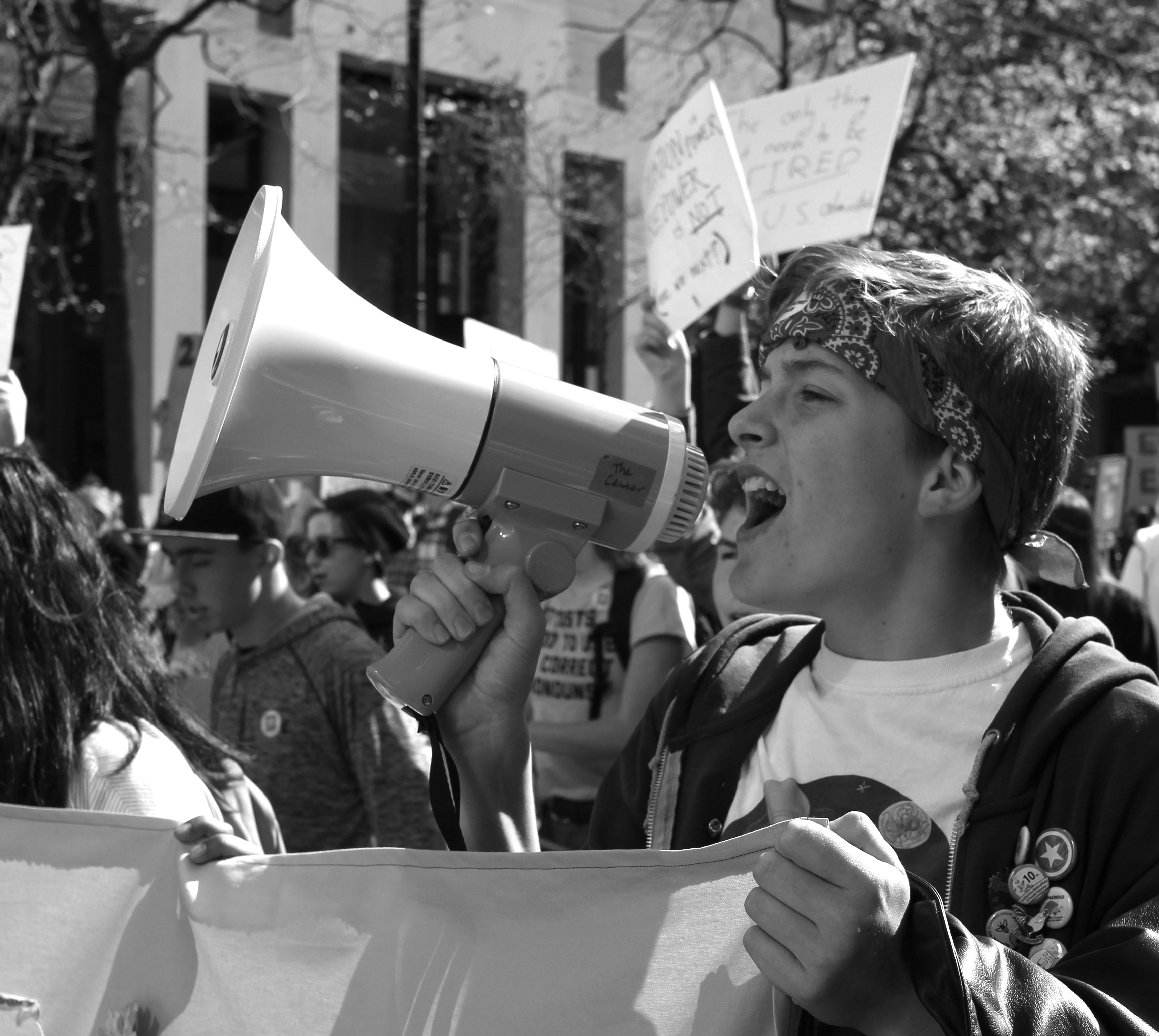Nine months after the original March For Our Lives demonstration on March 24, 2018, students in the Bay Area and at Lick-Wilmerding have continued to engage in the national and global discussion on gun violence and gun control.
Calvin Quick, a legislative advocate for Bay Area Student Activists (BAStA), is a twelfth grader at the Lycee Francais in San Francisco and was one of the student planners of the Bay Area March For Our Lives demonstration. BAStA works to bring together a diverse group of young people to fight against injustices in the world, including fighting for ways to promote change in gun legislation. “One of the successes of MFOL movement is that it drew a lot of attention to a movement that was already there,” said Quick. Since the original March For Our Lives movement, “The American public has become more invested in the fight for better gun control,” claimed Quick.
Quick said that even amongst gun owners, gun legislation is still a widely debated topic. “Membership of the NRA actually largely supports common sense gun reform, it’s just that the predominant narrative of advocating on gun policy has been one that has been dictated by the money interest for so long.” Quick said in response to a poll published in the Huffington Post that states that on average 70% of NRA members support common sense gun legislation such as limitations on concealed carry permits in the United States. Quick and his colleagues seek to support a change in gun legislation by lobbying for common sense gun control laws, like limiting the purchase of assault weapons and making more comprehensive background checks mandatory across the country.
Quick is currently lobbying for a bill that will change the way California handles gun restraining orders. California law states that family members and law enforcement figures can petition to place a restraining order on a gun owner if they have reason to suspect that the owner is at risk of harming themself or others. This new bill “relates to what happened in Parkland, for example, where the teachers and others who knew the eventual shooter and were well-aware that he possessed guns and was struggling. This bill would expand the circle of those who could petition for a restraining order from just family to coworkers, employers or teachers as well.”
However, despite his personal passion for political activism, Quick acknowledged that many young people, especially students, have struggled to stay involved with the March for Our Lives movement. “I think that people losing interest in the movement is a concern that everyone who stays involved has… as students we have a lot of work and it’s not really ingrained culturally to be politically active,” said Quick. However, despite the struggle to stay involved with the movement, Quick does not believe that people are losing interest in gun control advocacy. “I do think there is not a decreasing interest… but there has been a decrease in the investment that people are willing to put in by their own initiative. So if we go out and motivate people we still get a lot of reaction from that, it’s just that the impulse for people to take the initiative frankly has been lacking,” said Quick.
Quick also mentioned other ways for students to get involved besides attending protests;“The biggest way that you can make an impact is through voting…so of course people should pre-register to vote or register to vote. I encourage people to go read the newspaper or the local newspaper or just take a look around them because there’s tons of political activism, even if it’s not related to gun control.”
While a great many number of students and people across the nation have struggled to stay involved in gun reform activism, students all across the Bay Area have joined people like Quick and organizations like BAStA to continue the fight, with many Lick-Wilmerding students leading the charge.
Mud Bentley, a junior at LWHS and a leader of Fostering Activism for the Next Generation club (FANG), discussed his involvement with the fight for better gun control, as well as his opinion about the energy of the movement. “A lot of the momentum has been lost for a number of reasons. One [is that] gun violence is so common now that we think that people die all the time,” said Bentley. He issued a call to action;, “it’s hard to feel responsible for something that no one else seems to feel responsible for as well. We’re stronger when more people feel the need to take a stand and I am trying to stay in the fight by being part of FANG club and trying to get people… to come to meetings and to care about activism.” Like Quick, Bentley pushed the importance of remaining engaged and aware, as well as that of caring about the country’s future and the futures of those who live in it.
Lick’s student-run Sandy Hook Promise club is also working to raise awareness around gun violence in the United States, and to encourage Lick students to continue fighting against gun violence. “The club works with an organization called Sandy Hook Promise and they advocate for how to prevent gun violence or how to keep guns out of the hands of people who are potentially dangerous to themselves or others and how to make our community safer,” said Sophia Casey, one of the co-leaders of Sandy Hook Promise club. She explained that every meeting the members of the club spend their first few minutes together talking about current events to encourage people to keep the issue of gun violence in the forefront of their minds.
The club also takes on larger projects. “Starting next semester, we will be starting a program called Say Something, which is all about learning how to recognize signs of a potential shooter or someone who could potentially commit suicide or commit an act of violence and then how to bring that up and stop it,” said Casey. Casey wants this program to involve the entire school and give everyone an opportunity to educate themselves on gun violence prevention.
Like Quick, Casey stated that on the whole, the American public has become more invested in the fight for better gun control. “It’s affecting people directly… the media has brought more attention to gun violence as a whole, and so people are becoming more aware of the issue and becoming more invested in advocating for better policy because it is affecting everyday people.” However, Casey warned against allowing one’s frustration with gun violence to fizzle out.She encouraged members of the Lick community to continue engaging in the fight by discussing gun violence as a school and participating in Sandy Hook Promise Club’s call to action week next semester.
Casey also acknowledged that thinking about gun violence and shootings can be sad, complicated and even numbing. “One of the worst things that you can do is become numb, and, quoting Dr. Catherine Fung, ‘it is much better to be angry and sad than to be numb to it,’ but I think that’s what is happening.” Hopefully, if the school continues to address gun violence and the reasons behind it, it will keep people from going numb and will encourage people to continue fighting.






